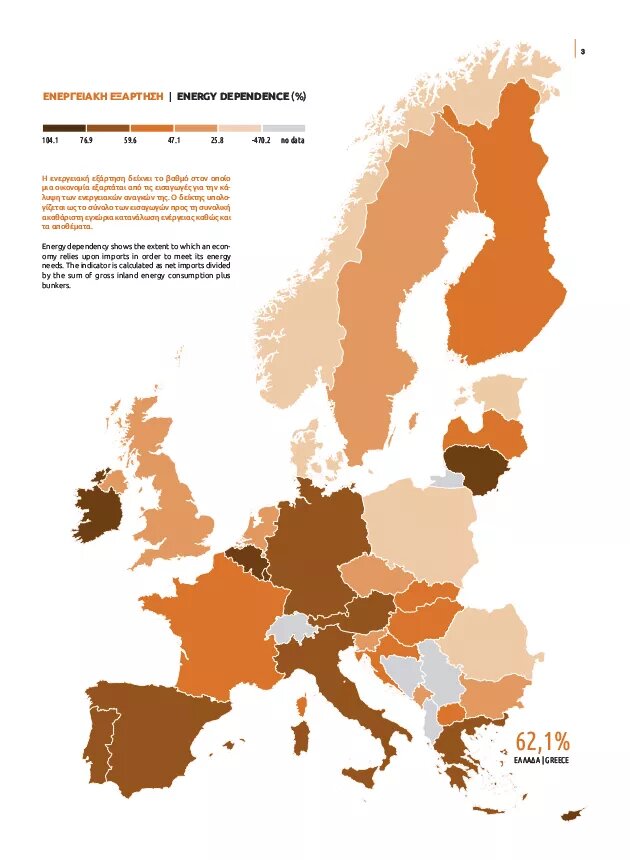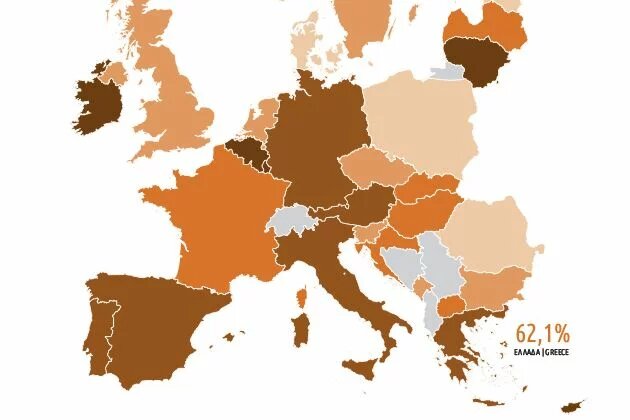

Lignite is virtually the only fossil fuel available in Greece. Greece imports 100% of the natural gas and 98% of the oil consumed in the country, with an energy dependency rate as high as 62.1% (2013) as opposed to an average 53.2% for the EU-28 .
The need to use domestic resources and the traditionally low cost of lignite were the reasons why Greece back in the 1950’s turned to lignite combustion as the backbone of its electricity system. However, in the past few decades, a debate has been initiated (albeit timidly) about the country’s transition to the post-lignite era, as a result of a number of factors: the EU Directives on the reduction of CO2 and industrial emissions, the increasing public awareness of environmental and public health issues, the gradual depletion of the reserves, the introduction of natural gas in the country’s energy mix, and the dramatic drop in the cost of renewable energy sources.